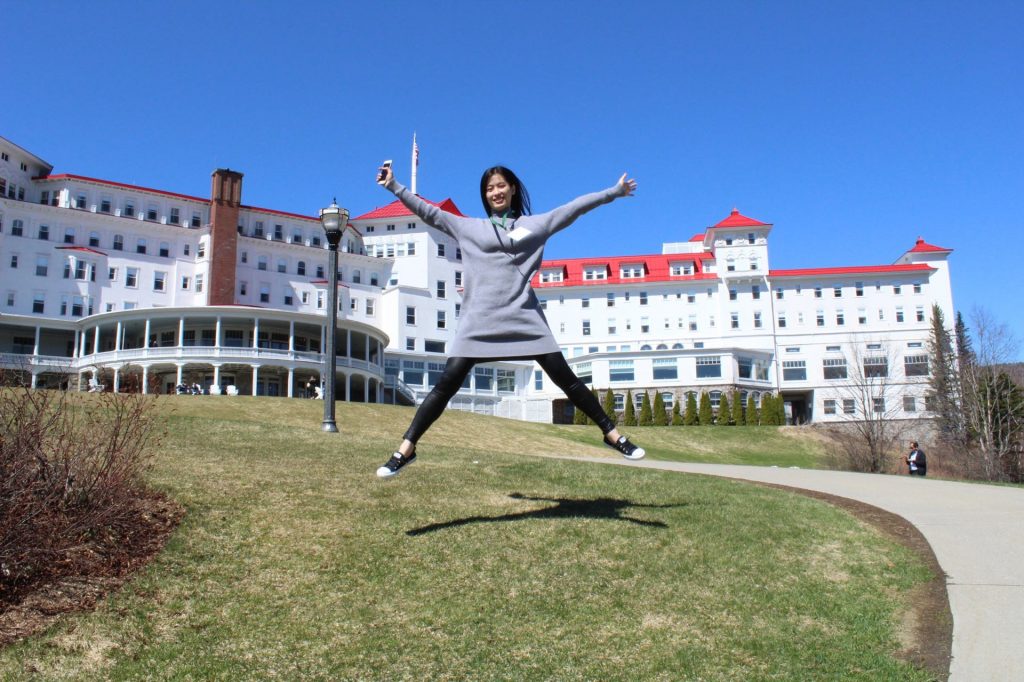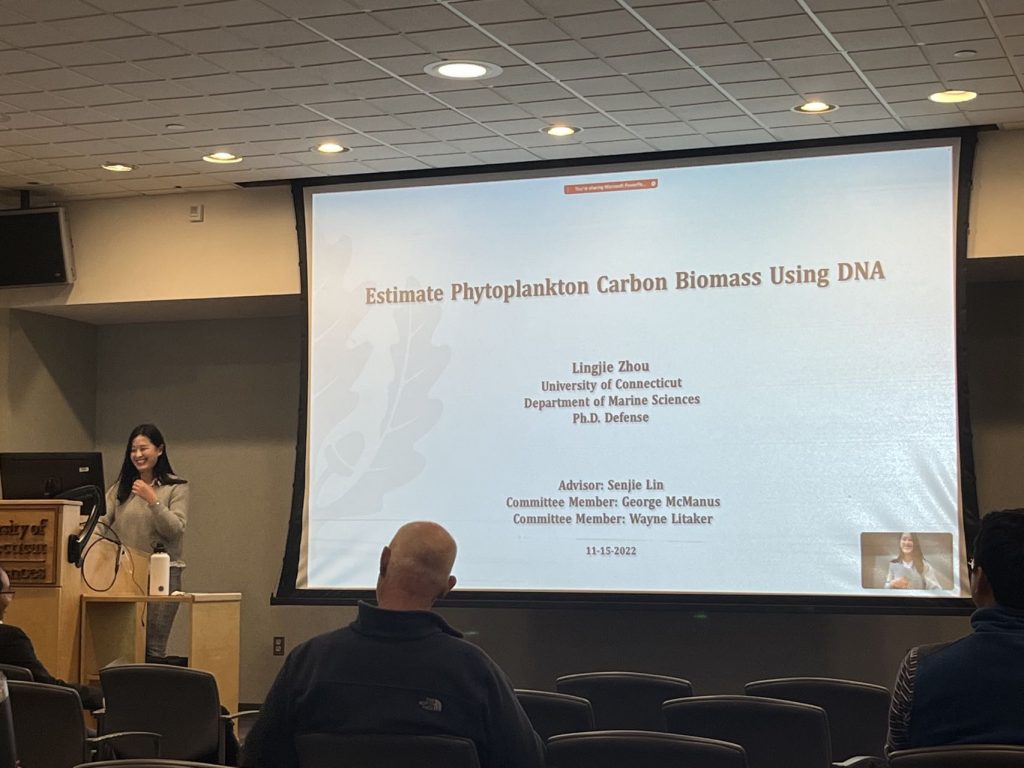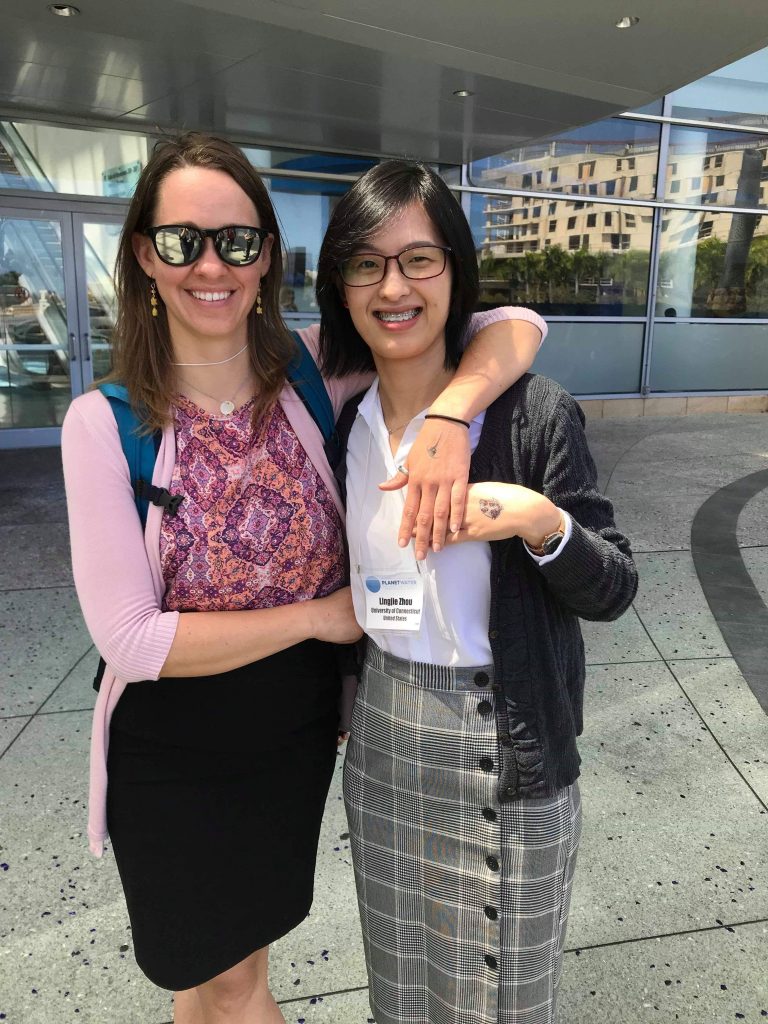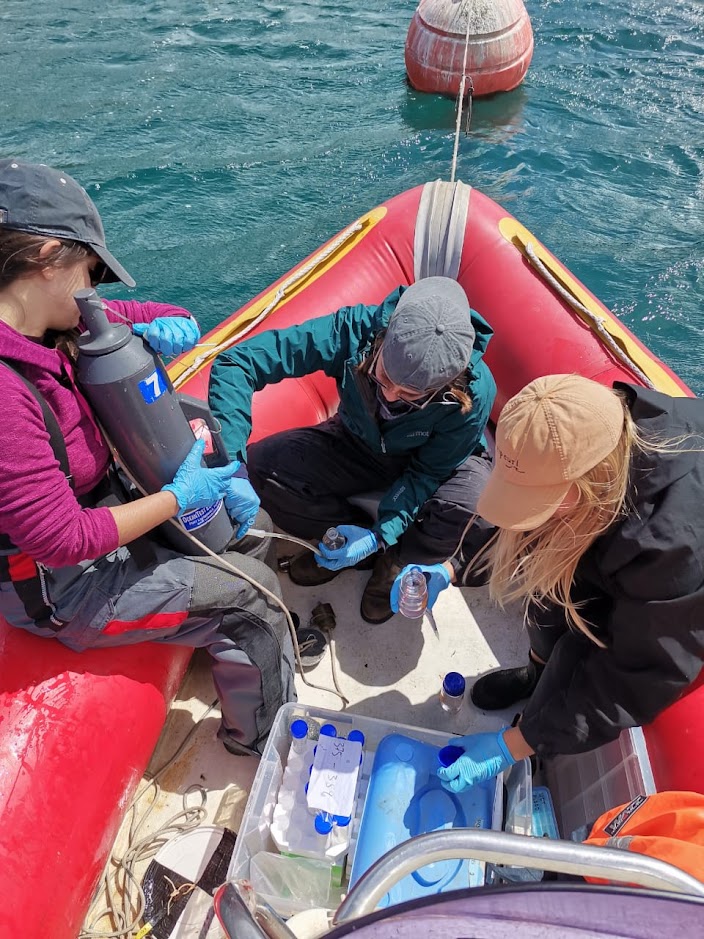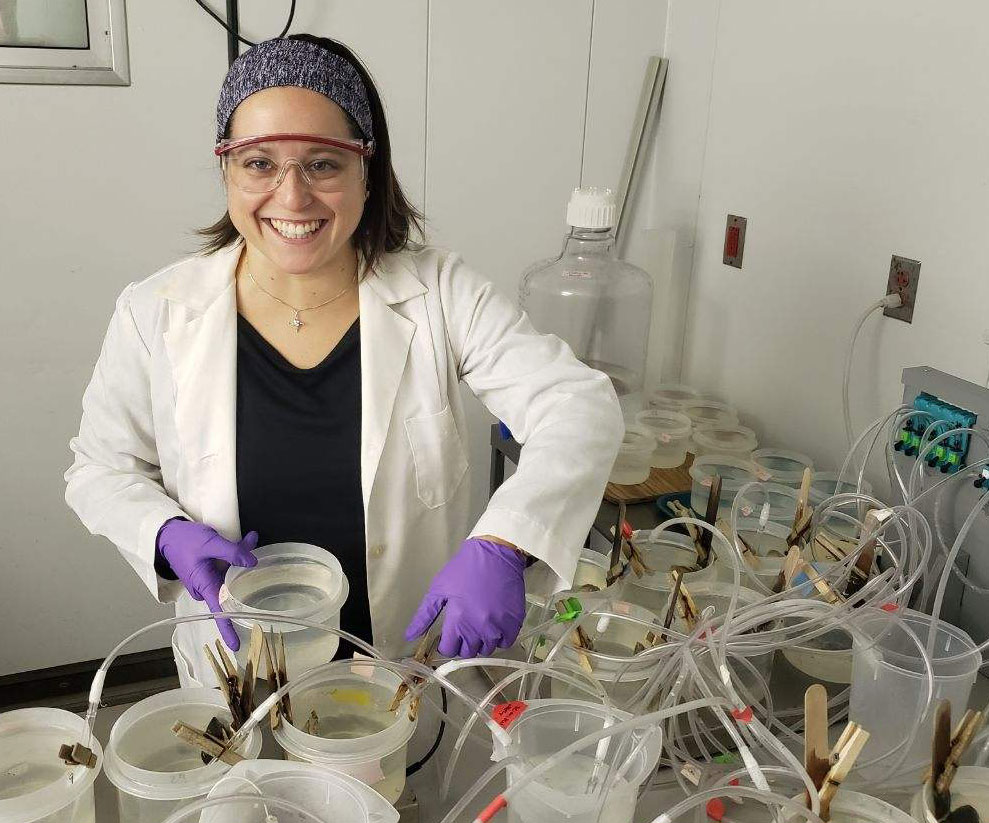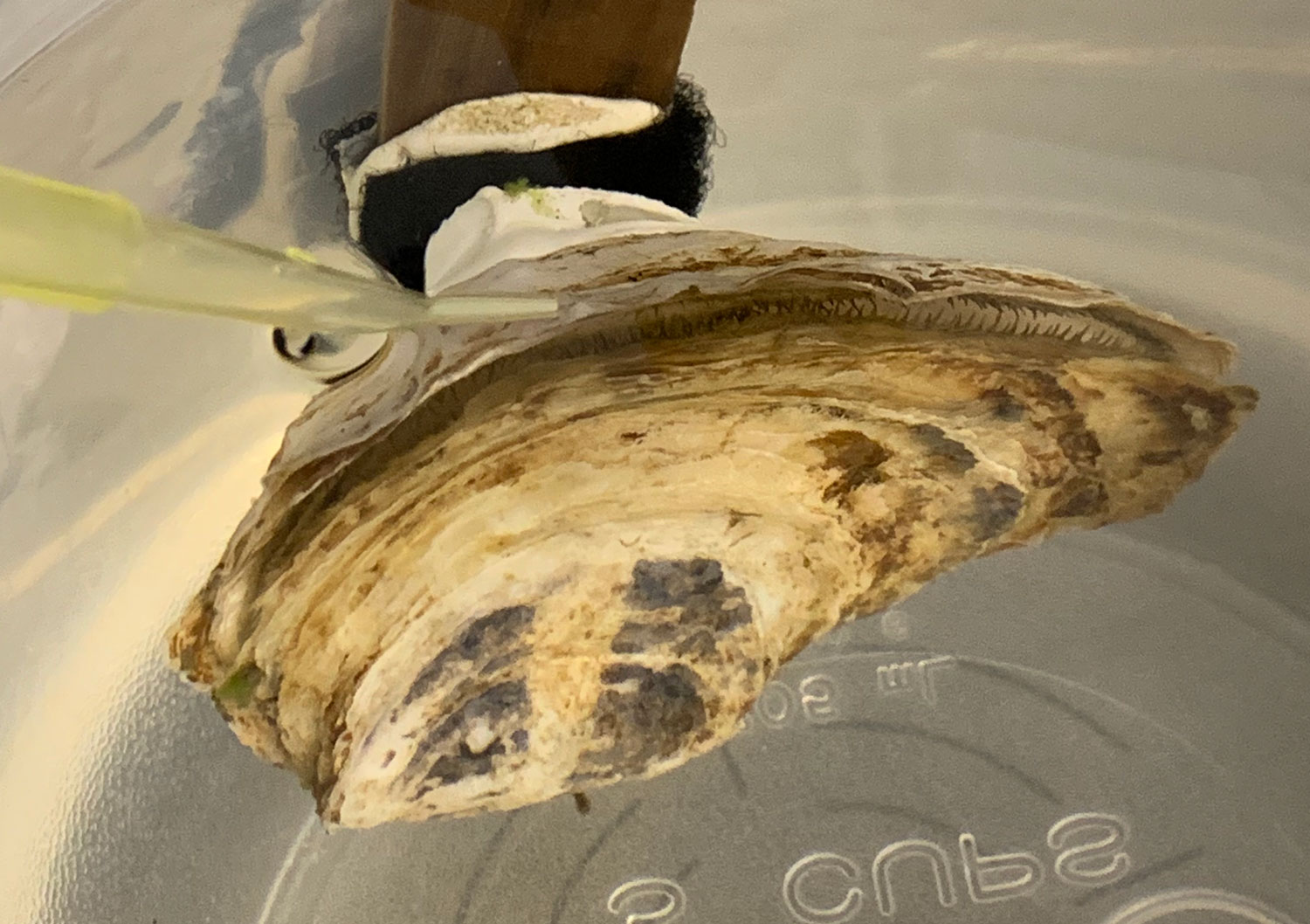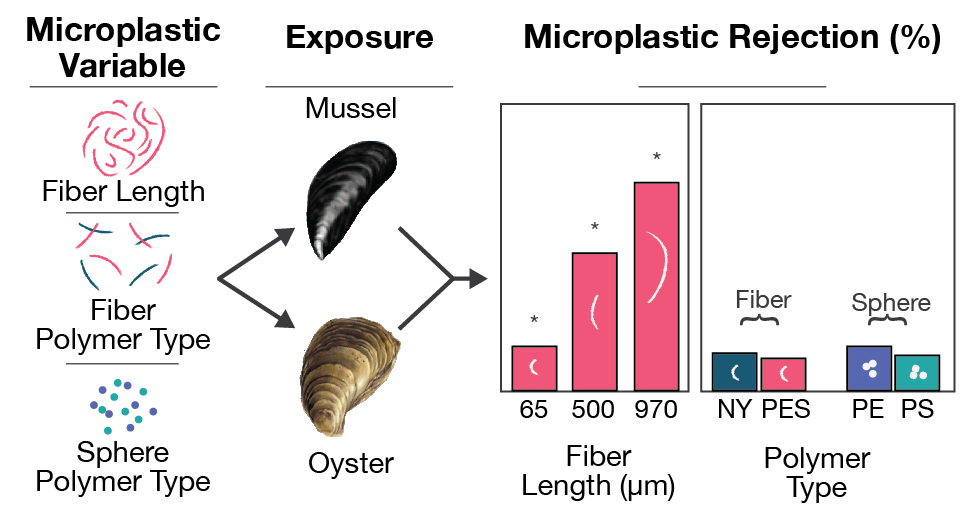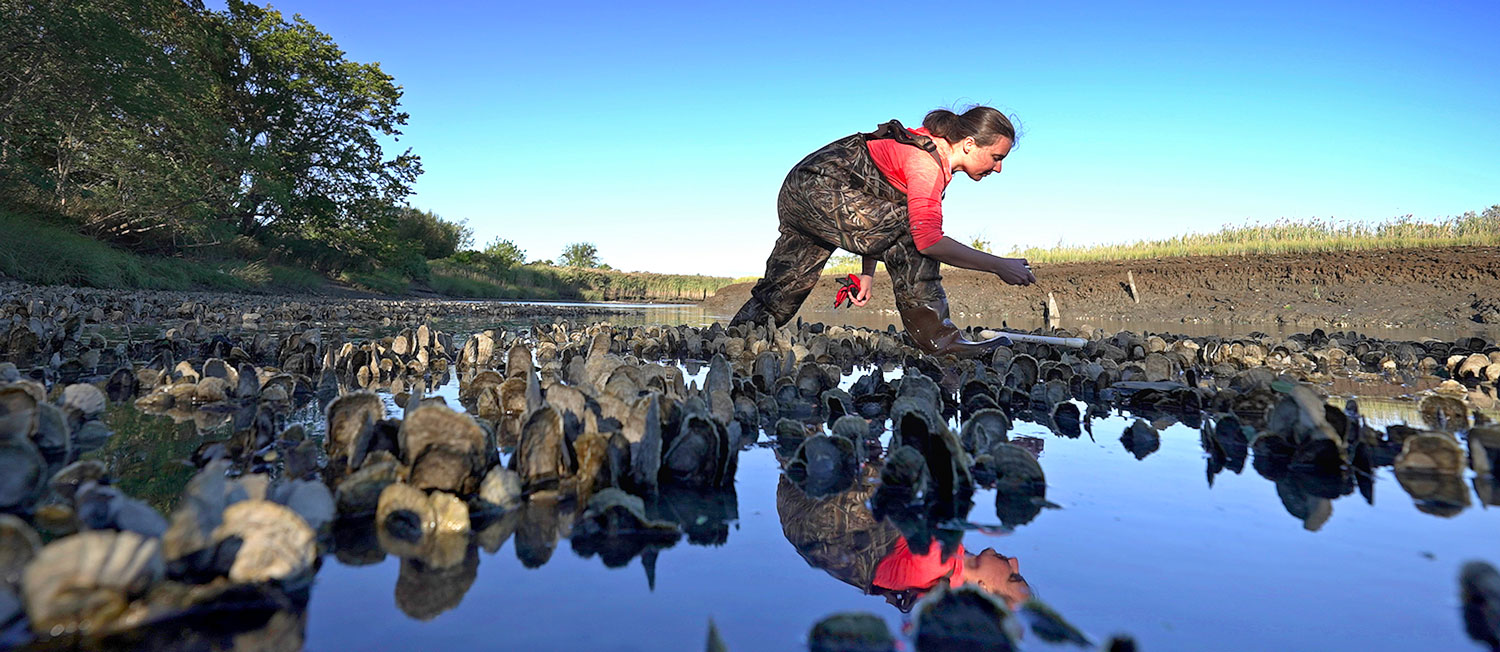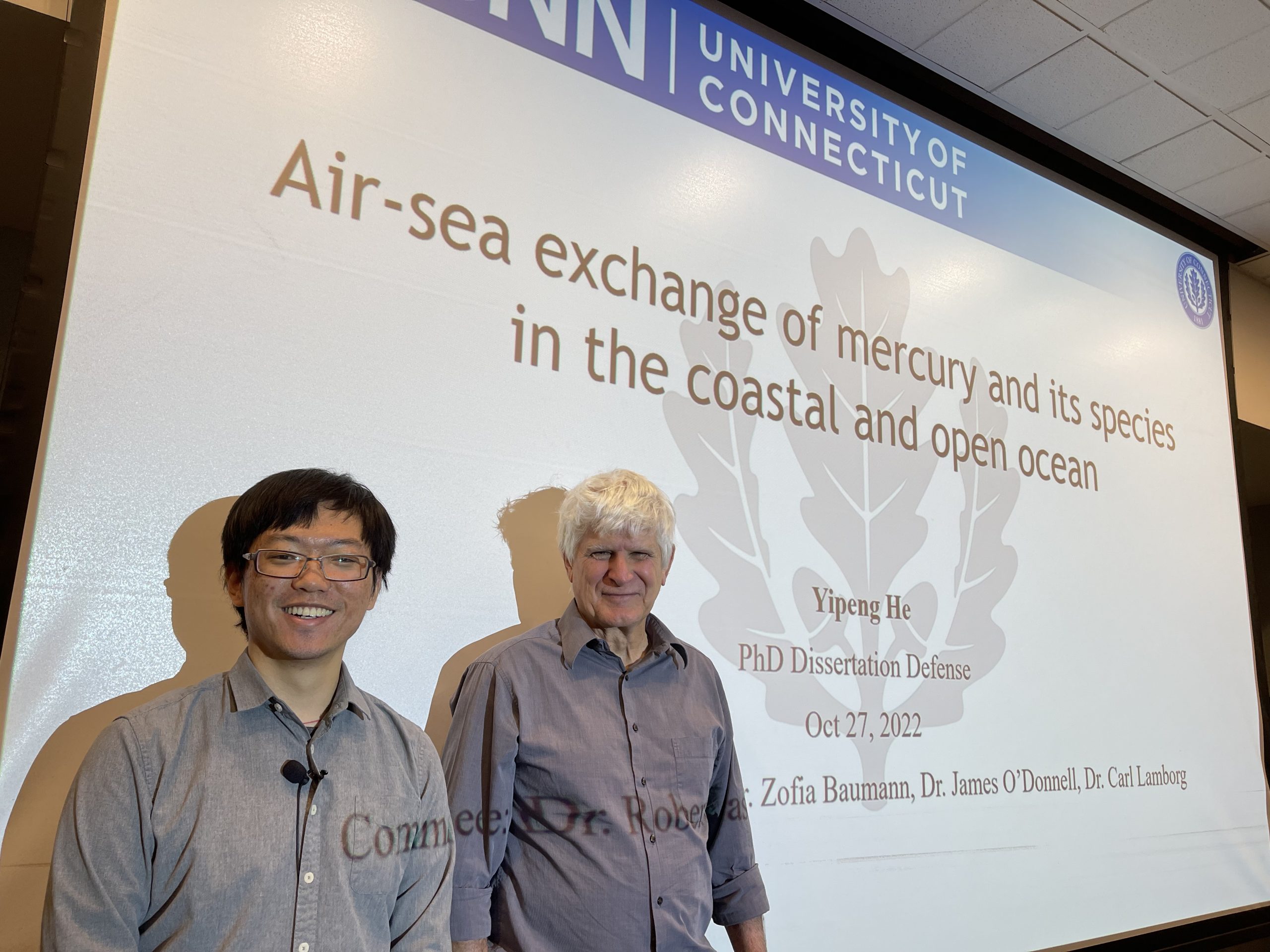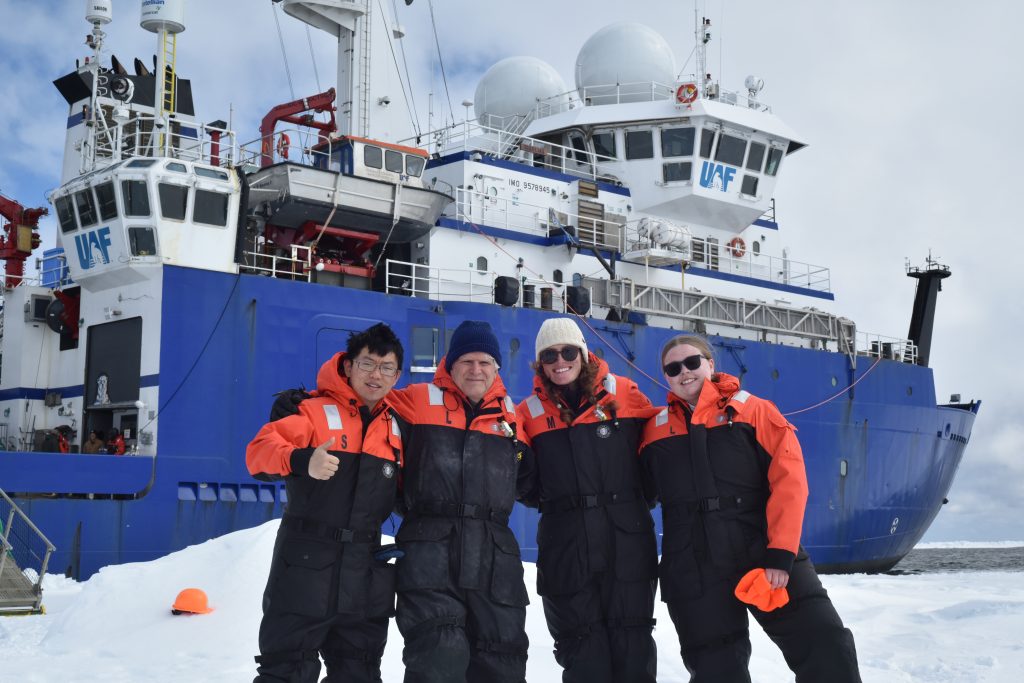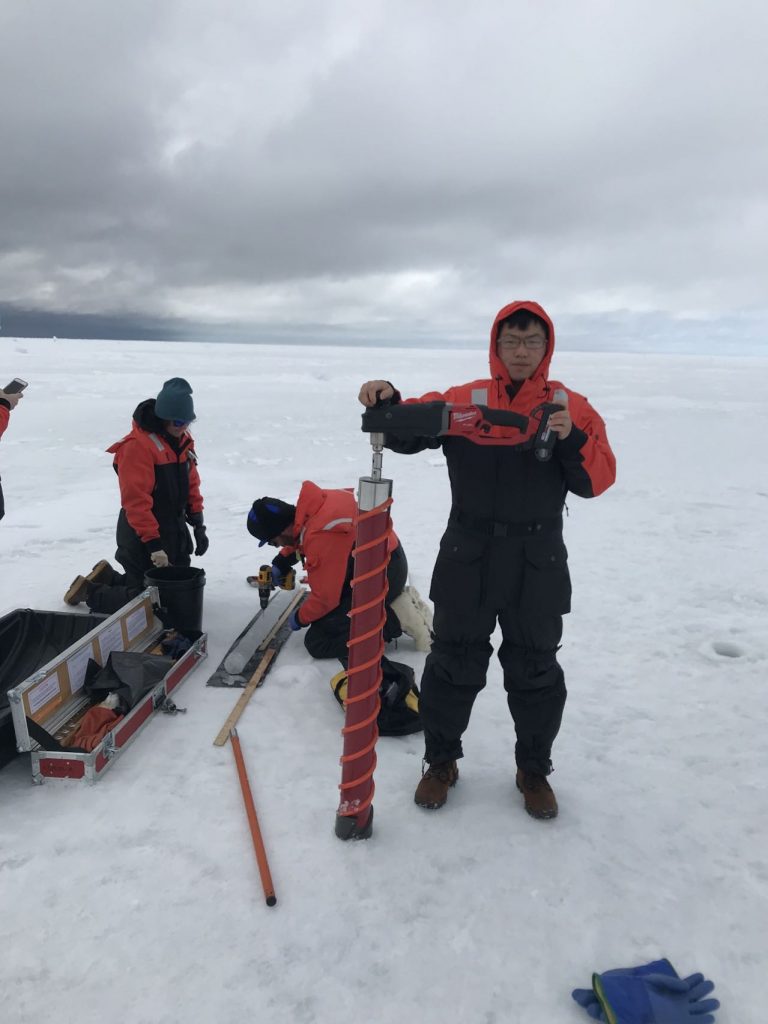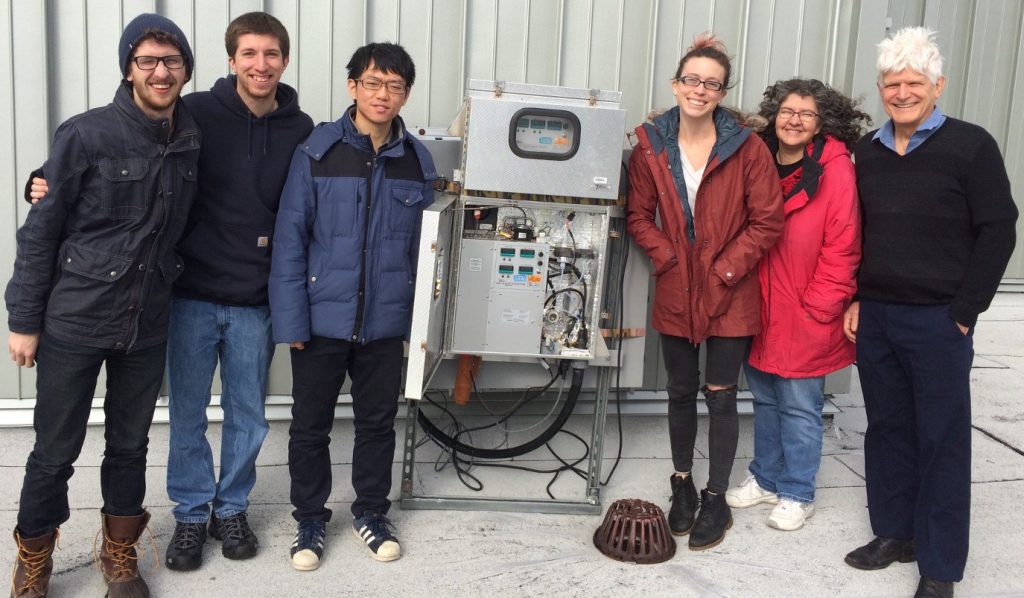Congratulations to Dr. Lingjie Zhou on her Ph.D. defense. Check out Dr. Zhou’s description of her Ph.D. journey and accomplishments below. We are wishing Dr. Zhou all the best for her future career!
I defended my Ph.D. dissertation entitled “Estimate phytoplankton carbon biomass using DNA” on Nov. 15th, 2022. My Ph.D. research was aimed at establishing the correlations among the cellular contents of DNA, C, and rDNA in phytoplankton and I measured these parameters for 11 species spanning major algal lineages at different growth stages and under different growth conditions. The correlations would enable oceanographers to determine the species composition and species-specific carbon biomass in the phytoplankton community simultaneously. Throughout the Ph. D. study period, I gave presentations at conferences, including the Northeast Algal Symposium, Phycological Society of America, ASLO Aquatic Sciences Meeting, and Feng Graduate Research Colloquium. I have published several papers as co-author (listed below), and I’m still working on my own papers now. I have received the Student Research Award from the Ecology and Evolutionary Biology Department of the University of Connecticut (UConn) and the Connecticut State Museum of Natural History in 2019 as well as several summer research awards from the Department of Marine Sciences at UConn.
References:
Nanjing Ji, Jinwang Huang, Zhenzhen Zhang, Lingjie Zhou, Xin Shen, Senjie Lin, Identification and expression analysis of meiosis-related genes in the harmful alga Heterosigma akashiwo (Raphidophyceae). Harmful Algae, 2020, 92, 101736, ISSN 1568-9883, https://doi.org/10.1016/j.hal.2019.101736.
Nanjing Ji, Zhenzhen Zhang, Jinwang Huang, Lingjie Zhou, Shengxian Deng, Xin Shen, Senjie Lin. Utilization of various forms of nitrogen and expression regulation of transporters in the harmful alga Heterosigma akashiwo (Raphidophyceae). Harmful Algae, 2020, 92, 101770, ISSN 1568-9883, https://doi.org/10.1016/j.hal.2020.101770.
Chuner Cai, Feng Liu, Ting Jiang, Lingke Wang, Rui Jia, Lingjie Zhou, Kai Gu, Jianfeng Ren, Peimin He. Comparative study on mitogenomes of green tide algae. Genetica, 2018, 146(6): 529–540, https://doi.org/10.1007/s10709-018-0046-7
